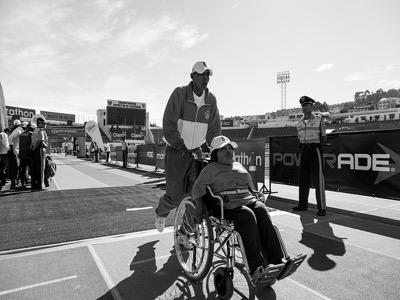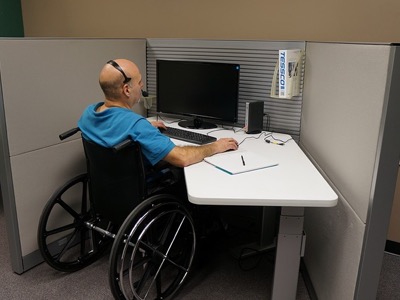 November marked the twentieth anniversary of the Disability Discrimination Act (DDA) becoming law in Britain.
November marked the twentieth anniversary of the Disability Discrimination Act (DDA) becoming law in Britain.
The DDA came as a result of prolonged campaigning and protesting from thousands of disabled people, throughout the 1990s. Many took to the streets to protest against society’s view that disabled people were helpless. Some blocked roads with their wheelchairs, while others handcuffed themselves to buses.
The introduction of the Disability Discrimination Act in 1995 meant that employers could not treat people differently due to their disabilities, and for the first time they had to be allowed into the workplace. Later, the act would also mean that service providers had to make ‘reasonable adjustments’ for disabled people, like providing extra help and changing premises to allow disabled access.
This was a huge breakthrough in what could be argued as the final step in the beginnings of equal rights. The Race Discrimination Act and The Sex Discrimination Act had already brought about change for women and people of a different race, but little had been done for the plight of the disabled.
Bela Gor, Legal Director at the British Disability Forum, said, “The DDA was unique in discrimination legislation in recognising that true social change would only be achieved by being proactive. The DDA prohibited discriminatory or less favourable treatment of disabled people but also, more importantly, required employers and service provides to act to remove disabling barriers. The reasonable adjustment provisions of the DDA forced employers and service providers to recognise that treating everyone equally or the same is not enough to level the playing field and enable disabled people to take their rightful place as employees, consumers and citizens.
She continued, “Everyone is different, and twenty years on businesses have come to realise that you have to treat people differently in order to treat them fairly.”
In celebration of the anniversary, the disabled charity, Scope has launched a campaign to bring to light the struggle that many disabled people faced through stories, images and videos. They also give details of how you can get involved with today’s struggle.
You can find out more about Scope’s campaign here. You can also take part in their Twitter campaign by using the #DDA20 or visiting their Twitter.








